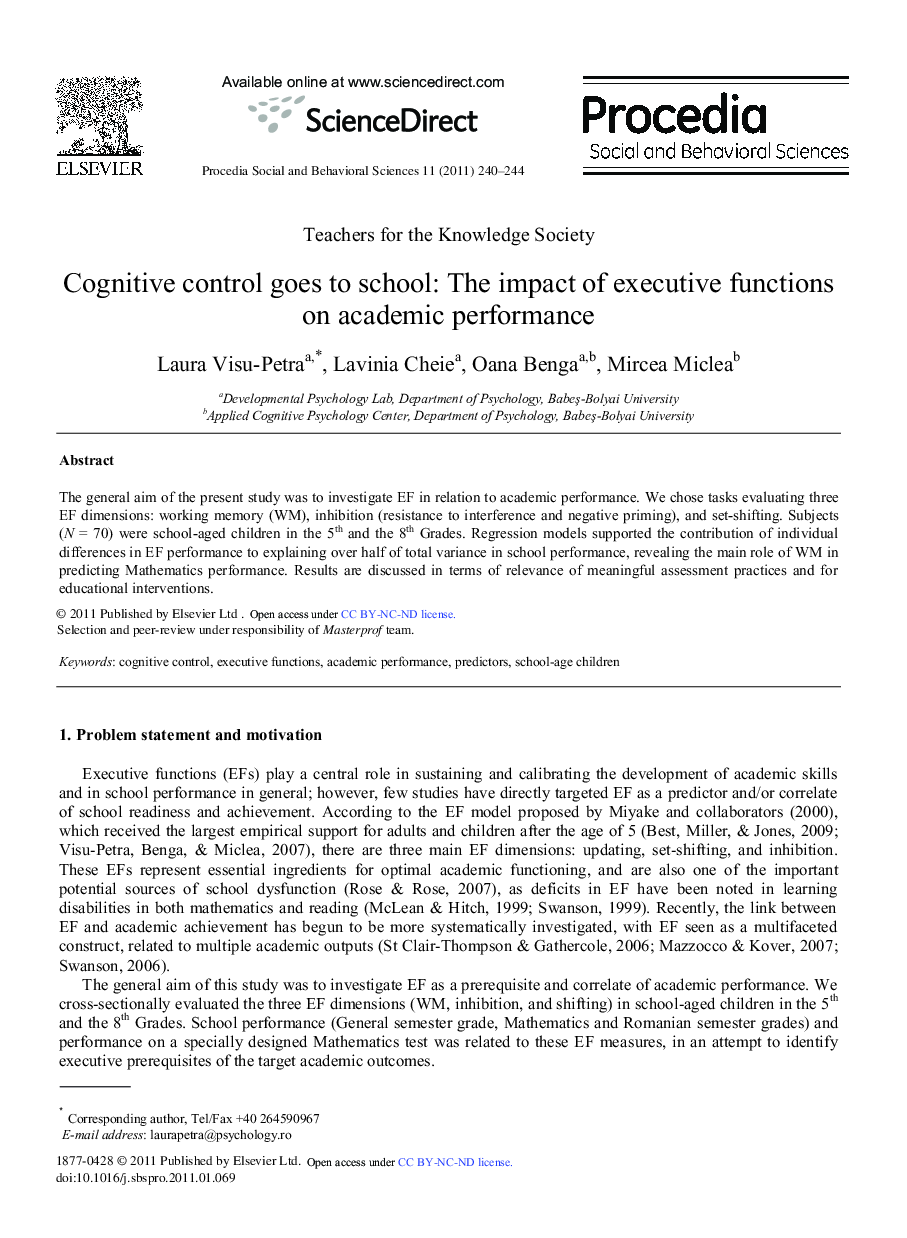| Article ID | Journal | Published Year | Pages | File Type |
|---|---|---|---|---|
| 1124266 | Procedia - Social and Behavioral Sciences | 2011 | 5 Pages |
The general aim of the present study was to investigate EF in relation to academic performance. We chose tasks evaluating three EF dimensions: working memory (WM), inhibition (resistance to interference and negative priming), and set-shifting. Subjects (N = 70) were school-aged children in the 5th and the 8th Grades. Regression models supported the contribution of individual differences in EF performance to explaining over half of total variance in school performance, revealing the main role of WM in predicting Mathematics performance. Results are discussed in terms of relevance of meaningful assessment practices and for educational interventions. © 2010 Published by Elsevier Ltd. Selection and peer-review under responsibility of Masterprof team
